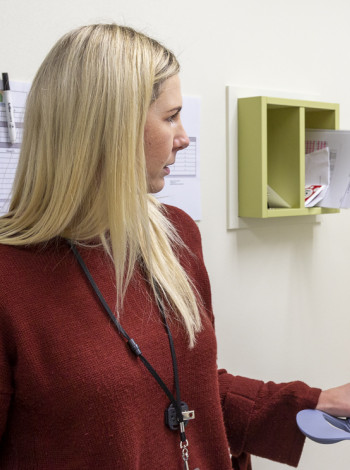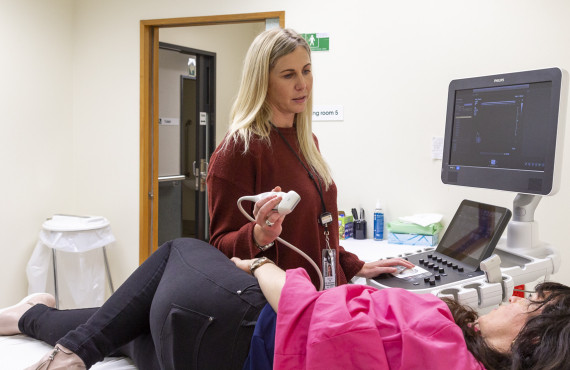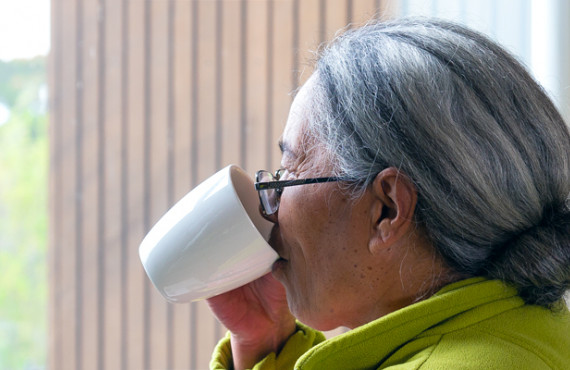Every year more than 3,000 women and a small number of men are diagnosed with breast cancer.
What is breast cancer?
Breast cancer is cancer that starts in the breast tissue on the chest.
Like the rest of your body, the breasts are made of tiny 'building blocks’ called cells.
Breast cancer is the abnormal growth of these cells into a lump or tumour.
Cancer is a disease of the body's cells. It starts in our genes. Our bodies are constantly making new cells, a process controlled by certain genes. Cancers are caused by damage to these genes. As the damaged cells replicate a lump or tumour is formed.
Tumours can be:
- Benign - not cancerous. These do not spread to other parts of the body.
- Malignant - cancerous
Most breast cancers begin in the cells lining the milk sacs (lobules), where milk is made, and tubes (ducts) that take the milk to the nipple.
Women and men both have breast tissue. In women, breasts are made up of milk glands, connective tissue, and fat. The milk glands consist of milk sacs (lobules), where milk is made, and tubes (ducts) that take the milk to the nipple.
During puberty, males produce large amounts of the male hormone testosterone, which stops the growth of lobules in their breast tissue.
Breast tissue may include the lower armpit (axilla), which contains lymph nodes (glands). These are part of the lymphatic system, which protects us from infection and disease.
- He mate ki ngā pūtau kikokiko o te ū te matepukupuku ū. Ka hāngai atu a whakararo o nga kēkē (axilla) ki te kikokiko ū, tērā e pupuri ana i ngā tīpona waitinana (repe waitinana).
- Neke atu i te 3,000 ngā wāhine me tētahi puna iti nei o ngā tāne whakataunga ai me te matepukupuku o ngā ū ia tau, ia tau.
- Ko te tikanga, ka ora mai koe i te matepukupuku o ngā ū mehemea ka tere kitea.
- Mō te nuinga, kāre i te mōhiotia, nā te aha puta ai te matepukupuku o ngā ū.
- Tērā pea, he tohu moata ngā panonitanga ki ngā ū mō te puta o te matepukupuku ū, nā reira me tirotirohia e tētahi rata.
Types of breast cancer
Breast cancer is divided into two main types:
- pre-invasive - breast cancer that is only inside the milk ducts (DCIS) or lobules (LCIS)
- invasive - breast cancer that has spread into the breast tissue and nearby lymph nodes
Invasive breast cancer that has spread to other parts of your body is called advanced, secondary or metastatic cancer.
Breast cancer symptoms
Signs and symptoms of breast cancer may include:
- a lump in the breast
- the skin on the breast is thicker or dimpled (it can look like an orange peel)
- a lump or swelling in one or both armpits
- a change in the shape or size of the breast
- the nipple turning in, unless the nipple has always been turned in
- a rash on the nipple
- discharge or bleeding from the nipple
- pain or discomfort in the breast that does not go away
Breasts naturally change as with age, and it is normal for some changes during your period (menstrual cycle).
Having these symptoms does not mean you have breast cancer, but it is important to have any changes checked by your doctor.
Tips for talking to your doctor
- make a list of what you are feeling and how often it happens, including as much detail as possible
- think about your family/whānau history of cancer and tell your doctor
- go back to your doctor if you don't feel better, even if tests show you don't have a problem - you can ask for a second opinion if you want one
- take a family/whānau member or friend with you to the appointment for support
What causes breast cancer?
Like many types of cancer, we don’t always know why people get breast cancer, but some things increase your risk.
These risk factors include:
- getting older
- being overweight after menopause
- lack of exercise, drinking alcohol and smoking tobacco
- having breast cancer or ductal carcinoma in-situ (DCIS) before
- increased number of abnormal cells, which can be seen in a breast biopsy (atypical hyperplasia)
- increased breast density
- a family history of breast cancer
- inheriting a faulty or altered gene that is linked to an increased chance of developing breast cancer (BRCA1 and BRCA2)
- taking hormones - menopausal hormone therapy (MHT), hormone replacement therapy (HRT) or the combined oral contraceptive pill
Most people who develop breast cancer have no family history of the disease.
Only about 5% of breast cancers occur in people carrying inherited faulty genes (BRCA1 and BRCA2).
The chance of there being a family link with breast cancer is higher when:
- you have both ovarian cancer and breast cancer
- you or a family member have breast cancer affecting both breasts
- several closely related family members have been diagnosed with breast cancer or related cancers, such as ovarian cancer at a young age
- you have Jewish ancestry and a close relative with breast, ovarian or pancreatic cancer
- a man in your family has been diagnosed with breast cancer
If you have any concerns about breast cancer risk for yourself or your family/whānau members, speak to your doctor. If you are at higher risk of developing breast cancer, you may need breast checks more often, and these may start at a younger age.

BreastScreen Aotearoa
New Zealand has a free breast screening programme available to all women aged 45 to 69.
Phone 0800 270 200
Kua tū ki Aotearoa tētahi hōtaka ria ū mō te kore utu e wātea ana ki ngā wāhine katoa o Aotearoa kei waenga nui i ngā tau 45 ki te 69. He mea whakaora tāngata te mahi whakaata ū mā te rapu moata i te matepukupuku o ngā ū i mua i te horapatanga. Mō te roanga ake o ngā kōrero e pā ana ki te ria matepukupuku ū, me ngā hua tērā ka taea, me ngā wharanga o te whai auau i ngā whakaata ū, tērā pea ka hiahia koe ki te toro ki te paetukutuku BreastScreen Aotearoa www.timetoscreen.nz/breast-screening.

Breast cancer is diagnosed using a mammogram, ultrasound, MRI scan and biopsy.

We are here to help and support you and your whānau through cancer diagnosis, treatment and recovery…

Cancer can impact not only your health but your lifestyle and relationships.
We know that going through cancer is tough and can raise many questions. You are not alone.
We have health professionals to answer your questions and provide the support you need.
Get in touch
